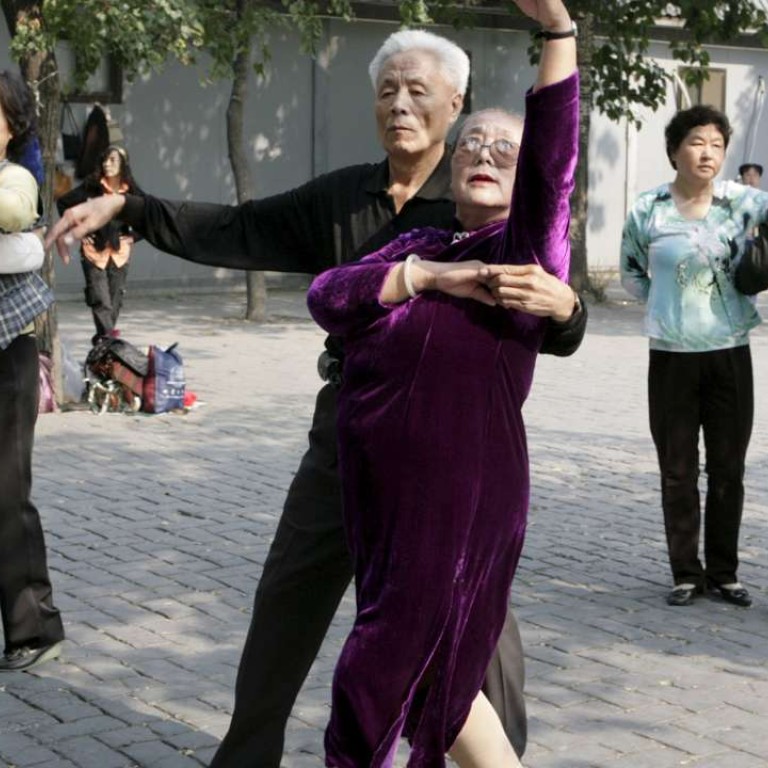
‘On time and in full’: China’s Premier Li Keqiang seeks to ease fears over pension payments
Premier says contributions by businesses and individuals will be cut
The government would meet its pension obligations, Premier Li Keqiang vowed on Wednesday, saying payments would be made “on time and in full”.
Li also pledged to bolster the medical insurance scheme, promising to expand direct payment for hospital bills beyond the city level within one to two years.
He also pledged that business and individual contributions to social security would be cut.
READ MORE: In brief: Premier Li Keqiang on China’s growth target, US elections, and the future for Hong Kong and Taiwan
Successfully managing the mainland’s vast social security net – spanning pensions, medical care, unemployment, work safety and maternity and housing subsidies – is one of the biggest challenges the leadership faces.
The pension system, for instance, is under strain from the greying population and a shortfall in funding which could rise as high as US$11 trillion in the next 20 years. Businesses complain the contributions are too high while workers fear they are paying in more than they will eventually get back. And slowing economic growth only adds to the overall uncertainty.
But the premier sought to reassure the nation that the leadership could steer the system and ease the burden by cutting business and individual contributions.
“Nationally speaking and in the long run, there will absolutely be no problem in meeting pension payments … Ensuring that the elderly will be provided for cannot and will not be an empty promise,”
READ MORE: For a healthy and sustainable pension system, China must fill the funding gap
Li told the media after his annual speech closing out the National People’s Congress.
“There is still room for us to cut the [level of] contributions to these insurance schemes and funds,” he said.
Employees pay about 8 per cent of their monthly salary into an individual pension account while employers contribute about 20 per cent to a central pension fund. But some cities had to take out loans to make payments, fuelling anxiety, especially among workers in their 30s and early 40s, over their own financial stability when they retire.
The pension scheme is managed by the provincial governments, but Li said the central government was prepared to help with funding to make up for shortfalls.
“Local governments can be given greater autonomy to make their own decisions in adjusting downward such contributions in keeping with their local conditions,” he said. “All in all, the purpose of our effort is to lessen the corporate burden and put more money in the pockets of our people.
“If local governments have done their best, but still have special difficulty, the central government is prepared to extend help … and the central government will supervise local governments to make sure that pension benefits are paid on time and in full.”
Professor Wang Yanzhong, of the Chinese Academy of Social Sciences, said social security insurance was a basic guarantee by the government. Even with an ageing population and slower economic growth, Beijing would adjust the mechanism to ensure it worked, Wang said.
READ MORE: China’s pension fund may invest 30 per cent of net assets in equities
Li also promised to achieve direct settlement of in-patient hospital expenses at the provincial level within the year. The same arrangement would be achieved within two years for retired elderly people not living at their registered addresses.
This was welcome news for Shao Fangxiu, a 77-year-old retired doctor originally from Tianjin but who now lives in Shenzhen, where she is helping to care for her five-year-old granddaughter.
She must pay medical bills first, send them back to the college where she worked and wait several months to get reimbursed after the school’s financial department approved. For costly procedures like magnetic resonance imaging, she needed to ensure payment would be made in advance.
READ MORE: Big questions that went unasked at Chinese Premier Li Keqiang’s press conference
“The premier’s promise is very important to elderly such as ourselves who have worked in a city but moved to another place after retirement. He made the promise today in front of billions of Chinese people. I hope he and the government live up to it within two years,” she said.
For people like Song Ning, who runs a small advertising agency in Beijing, lower pension payments give her greater business opportunities.
“The biggest cost in the services industry is labour. With the cut I can save costs or hire more people, or give people higher pay,” Song said.

